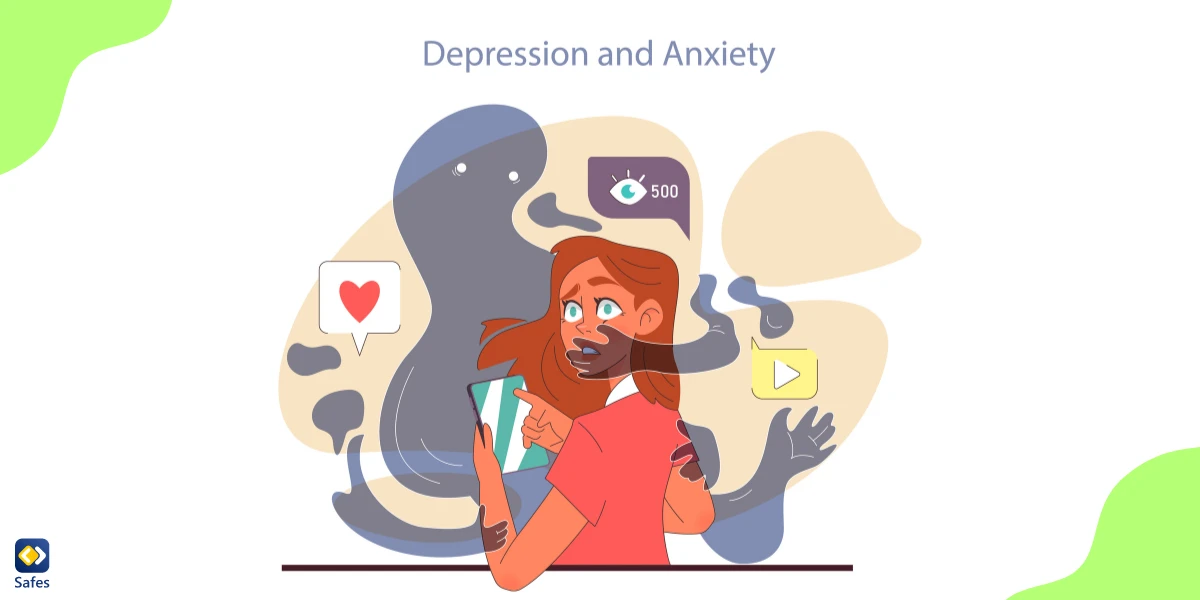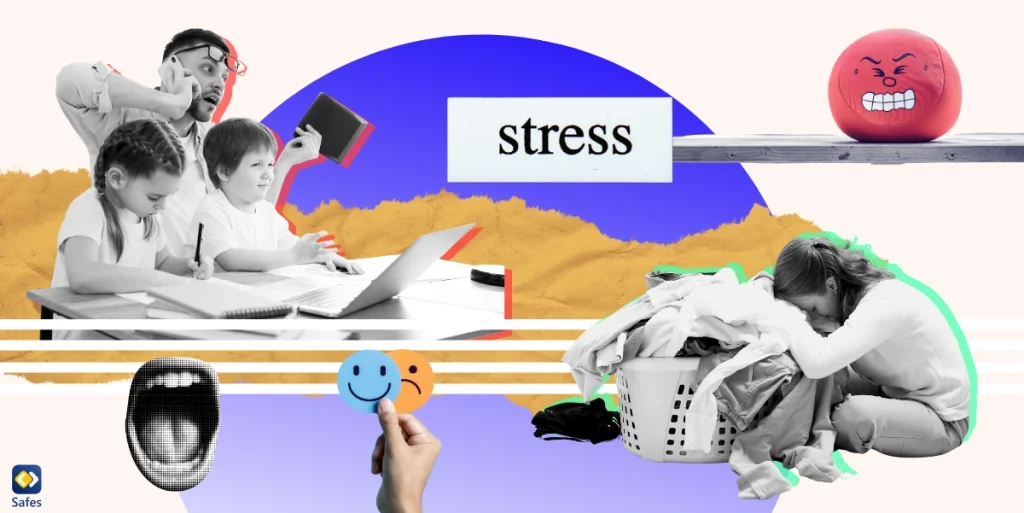In our digital age, the term ‘doomscrolling’ has emerged, representing a new challenge for mental health. It refers to the excessive consumption of negative online content, leading to a cycle of anxiety, despair, and emotional fatigue. This article aims to provide guidance on how to stop doomscrolling, particularly focusing on teens and their digital habits.
Download and Start Your Free Trial of the Safes Parental Control App
What Is Doomscrolling and How to Recognize its Signs?
Doomscrolling is the habit of continuously scrolling through social media and news feeds filled with distressing or pessimistic content. It’s an addictive behavior, strengthened by the endless stream of information available online and the emotional reactions these trigger.
Recognizing doomscrolling in teens can be a challenge. Look for signs such as refusing to put down their device, showing signs of anxiety or restlessness without their phone, and increased irritability or sadness. If these behaviors are present, it could indicate that their online activities are negatively affecting their mental health.
The Impact of Doomscrolling on Mental Health
Constant exposure to negative news and social media content can have a profound impact on the mental health of teenagers. According to a study by the International Journal of Environmental Research and Public Health, teens who spend more time on social media are more likely to report high levels of stress, anxiety, and depression. It is crucial to address the issue of doomscrolling mental health effects promptly before it escalates into a more severe mental health disorder like mindless scrolling depression.

Tips to Handle Doomscrolling
If your child is suffering from the consequences of doomscrolling, there’s a lot you can do to help them give up this harmful habit. Here we have some tips and strategies for you.
Setting a Positive Example
Parents can play a significant role in curbing the doomscrolling habit of their teens by setting a positive example. Limit your own screen time, engage in offline activities, and demonstrate the value of disconnecting from digital devices.
Creating a Digital-Healthy Home Environment
To further reinforce healthy digital habits, create a home environment that encourages offline activities. Allocate specific times for family activities that don’t involve screens, and establish zones in the house where digital devices are not allowed.
Using Parental Control Apps
Parental control apps like Safes can be a valuable tool in managing your child’s online behavior. These apps can set time limits on device use, filter out negative content, and provide reports on your child’s digital activity. It’s an effective way to monitor and control what your child is exposed to online, helping to prevent and manage the consequences of doomscrolling.
Using Safes, you can set screen time limits for different apps, such as social media. Moreover, you can set screen time breaks, giving a rest to their minds and eyes. You can also specify a certain time at night, when your child’s phone, tablet, or computer stops working except for making emergency phone calls and sending emergency messages. This way, there will be no more mindless scrolling at night which can prevent your child from getting a good night’s sleep.
Interested in trying Safes? Download it today on App Store or Google Play.
To learn how to put parental controls on different platforms using Safes follow the links below:
- Windows parental controls
- Macbook parental controls
- Parental controls on Android
- iPhone parental controls
Experience Safes with our free trial to discover how you can effectively manage and monitor your child’s online activities across various devices.
Encouraging Mindful Digital Habits
Encourage teens to be more mindful of their online habits. Teach them to regularly assess their digital consumption, question the content they consume, and take breaks from screens. Most importantly, promote the idea of quality over quantity when it comes to online activities.
Building Resilience and Coping Skills
Equip your child with the skills to handle stress and anxiety. Encourage them to engage in physical activities, practice mindfulness and meditation, and maintain a strong support network of friends and family. These skills can help them cope with the negative emotions associated with doomscrolling.

Further reading
If you’re concerned about your child’s health while using social media, you might find these blog posts beneficial:
- How Social Media Algorithms Contribute to its Toxicity
- How to Implement Social Media Unplugging in Your Family
- What I’ve Learned from Stories of Social Media Ruining Lives
- 3 Examples of Fake News That Went Viral on Social Media
Also, to learn more about doomscrolling and how to drop this habit, find more information on these websites:
- Challenge: Kick The Doomscrolling Habit
- 13 Ways to Stop Doomscrolling & Protect Your Mental Health
- How to Stop Doomscrolling
How to Stop Doomscrolling: Conclusion
Understanding how to stop scrolling social media excessively and learning to manage digital consumption effectively is a crucial skill for today’s teenagers. By setting a positive example, creating a digital-healthy home environment, using tools like Safes, and teaching mindful digital habits, you can help your child avoid the pitfalls of doomscrolling and promote better mental health.
Your Child’s Online Safety Starts Here
Every parent today needs a solution to manage screen time and keep their child safe online.
Without the right tools, digital risks and excessive screen time can impact children's well-being. Safes helps parents set healthy boundaries, monitor activity, and protect kids from online dangers—all with an easy-to-use app.
Take control of your child’s digital world. Learn more about Safes or download the app to start your free trial today!




